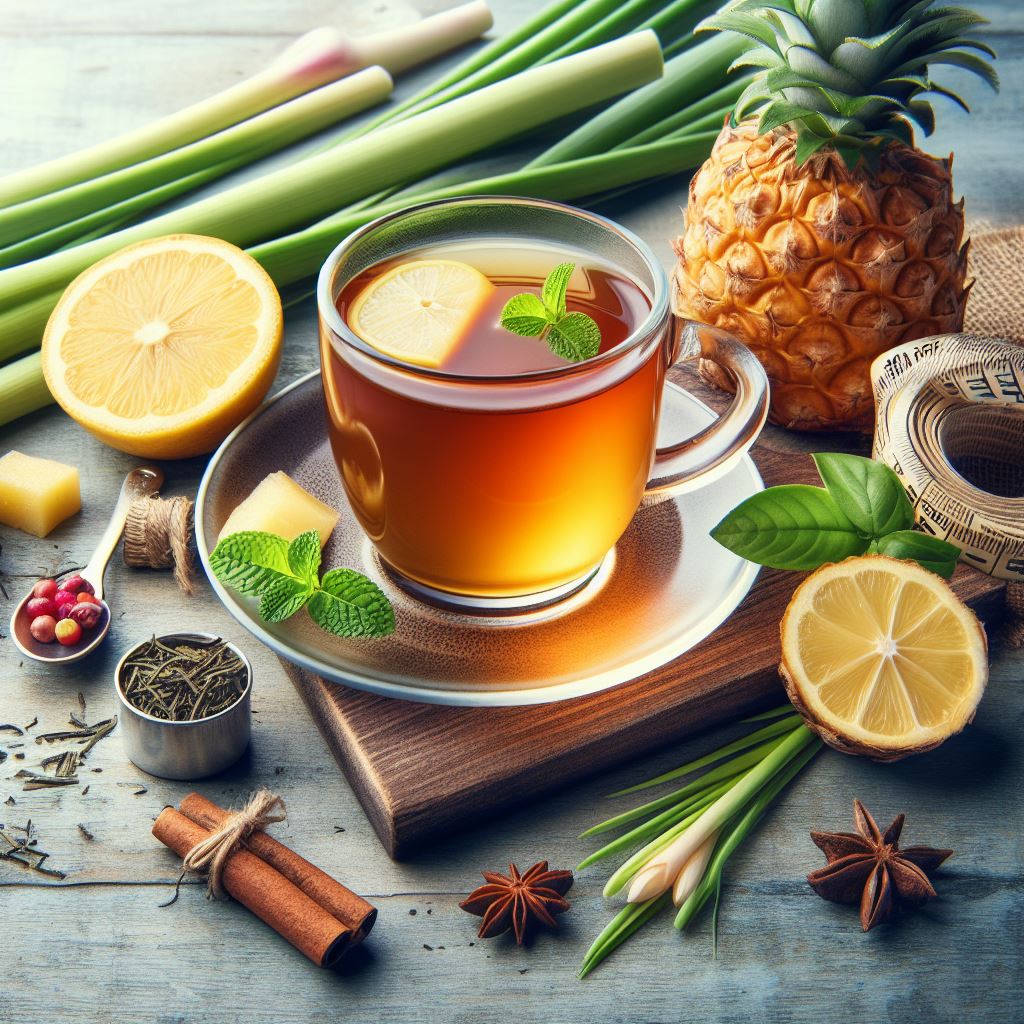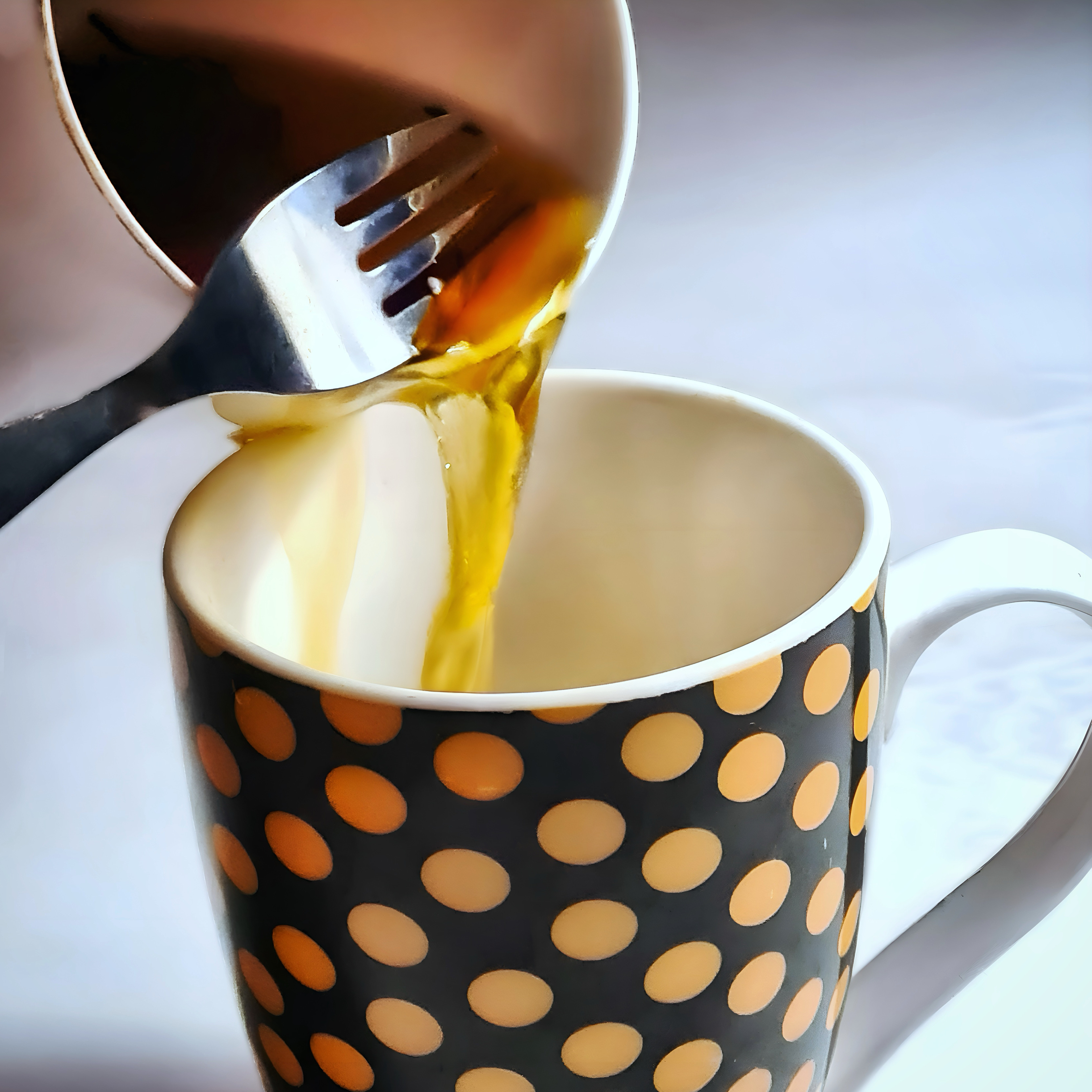Tea is enjoyed all around the globe, and for good reason. It has many health benefits, such as antioxidants, hydration, and relaxation. But did you know that you can make your tea even more delicious and nutritious by combining fruit and tea?
Fruit and tea combinations are a wonderful way to enjoy the natural sweetness and flavour of fruits, while also getting some extra vitamins and minerals. By making fruity infusions, you can also help you cut down on caffeine, sugar, and calories, making it a great choice for your health and wellness. In this post, we will explore the different ways to enjoy fruit with tea, which fruit goes well with which teas, and some of the benefits of combining them. Let’s get started!

How to Enjoy Fruit and Tea Together
There are two main ways to enjoy fruit with your tea: fresh fruit or dried fruit. Both methods have their advantages and disadvantages, so you can choose the one that suits your preference and availability.
Fresh Fruit
Using fresh fruit is a great way to add a burst of flavour and juiciness to your tea. You can use any fruit that you like, such as berries, citrus, apples, pears, peaches, melons, or tropical fruits. The best way to use fresh fruit is to chop it into small pieces and add it to your tea after brewing. You can also mash or puree the fruit and stir it into your tea for a smoother texture.
Some tips for using fresh fruit are:
- Wash the fruit well before using it.
- Remove any seeds, pits, or cores from the fruit.
- Use organic or pesticide-free fruit if possible.
- Use ripe and sweet fruit for the best flavour.
- Experiment with different combinations of fruits and teas.

Dried Fruit
Dried fruit is another option for adding to your tea. It has more concentrated flavour and sweetness than fresh fruit, and it can also last longer and be stored easily. You can use any dried fruit that you like, such as raisins, cranberries, apricots, dates, figs, or prunes. The best way to use dried fruit is to steep it with your tea leaves in hot water for a few minutes. You can also soak the dried fruit in water or juice beforehand to rehydrate it and make it softer.
Some tips for using dried fruit are:
- Choose unsweetened or naturally sweetened dried fruit if possible.
- Avoid dried fruit that has added sugar, preservatives, or artificial flavours.
- Cut the dried fruit into smaller pieces if needed.
- Use more dried fruit than fresh fruit for the same amount of tea.

Which Fruit Goes Well with Which Tea?
Now that you know a bit about the types of fruit to use, you might be wondering which fruit goes well with which teas? Of course, this is a matter of personal taste and preference, but here are some general guidelines and suggestions that you can try:
1. Black Tea

Black tea is the most common type of tea in the world, and it has a strong and robust flavour. Black tea can pair well with many fruits, especially those that have a tart or citrusy taste. Some examples are:
- Lemon: Lemon is a classic addition to black tea, as it adds a refreshing and zesty flavour. You can use fresh lemon slices or juice, or dried lemon peel.
- Orange: Orange is another citrus fruit that can enhance black tea with its sweet and tangy flavor. You can use fresh orange slices or juice, or dried orange peel.
- Cranberry: Cranberry is a berry that has a sour and bitter taste that can balance the richness of black tea. You can use fresh or dried cranberries, or cranberry juice.
- Apple: Apple is a fruit that has a crisp and sweet taste that can complement black tea with its subtle flavour. You can use fresh or dried apple slices or chunks.
2. Green Tea

Green tea is a type of tea that has a mild and grassy flavour. Green tea can pair well with many fruits, especially those that have a tropical or exotic taste. Some examples are:
- Mango: Mango is a tropical fruit that has a juicy and sweet taste that can enhance green tea with its tropical flavour. You can use fresh or dried mango slices or chunks.
- Pineapple: Pineapple is another tropical fruit that has a tangy and sweet taste that can brighten up green tea with its fruity flavor. You can use fresh or dried pineapple slices or chunks.
- Peach: Peach is a fruit that has a soft and sweet taste. It can match really well with green tea with its delicate flavour. You can use fresh or dried peach slices or chunks.
- Lychee: Lychee is an exotic fruit that has a floral and sweet taste that can add a unique flavour to green tea. You can use fresh or dried lychee pieces or juice.
3. Herbal Tea

Herbal tea is a type of tea that is made from dried fruits, flowers, spices, or herbs. This type of tea can have a variety of flavours, depending on the ingredients used. Herbal tea can pair well with many fruits, especially those that have a similar or contrasting taste. Some examples are:
- Chamomile: Chamomile is a flower that has a soothing and calming effect. Chamomile tea has a sweet and earthy flavor that can pair well with fruits that have a similar or contrasting taste, such as apple, pear, honeydew, or lemon.
- Peppermint: Peppermint is an herb that has a cooling and refreshing effect. Peppermint tea has a minty and spicy flavour that can pair well with fruits that have a similar or contrasting taste, such as orange, grapefruit, strawberry, or blueberry.
- Ginger: Ginger is a root that has a warming and stimulating effect. Ginger tea has a spicy and zesty flavor that can pair well with fruits that have a similar or contrasting taste, such as lemon, lime, pineapple, or mango.
- Hibiscus: Hibiscus is a flower that has a tart and tangy effect. Hibiscus tea has a sour and fruity flavour that can pair well with fruits that have a similar or contrasting taste, such as cranberry, raspberry, cherry, or peach.
Benefits of Combining Fruit and Tea:
Combining fruit and tea is not only delicious but also healthy. Fruit and tea combinations can offer several benefits for your health and wellness, such as:
- Hydration: Fruit and tea combinations can help you stay hydrated by providing you with fluids and electrolytes. Hydration is essential for your body’s functions and processes, such as digestion, circulation, and temperature regulation.
- Antioxidants: It can provide you with antioxidants, which are compounds that protect your cells from damage caused by free radicals. Free radicals are unstable molecules that can cause oxidative stress and inflammation in your body, leading to chronic diseases such as cancer, diabetes, and heart disease.
- Vitamins and minerals: Fruity infusions can provide you with vitamins and minerals, which are nutrients that your body needs for growth, development, and maintenance. Some of the vitamins and minerals that you can get from fruit and tea combinations are vitamin C, vitamin A, potassium, calcium, iron, and magnesium.
- Digestion: Combining fruit and tea can help you improve your digestion by stimulating the production of saliva and gastric juices. This can help you break down food more easily and absorb nutrients more efficiently. Making fruit combinations can also help you prevent or relieve digestive issues such as indigestion, nausea, bloating, gas, and constipation.
- Relaxation: Fruit and tea combinations can help you relax by soothing your nerves and muscles. This can help you reduce stress and anxiety levels and improve your mood and sleep quality. Fruit and tea combinations can also help you cope with pain and discomfort caused by headaches, cramps, or inflammation.
Conclusion
Fruit and tea combinations are a wonderful way to enjoy the natural sweetness and flavour of fruits while also getting some extra vitamins and minerals. Fruit and tea combinations can also help you cut down on caffeine, sugar, and calories making it a great choice for your health and wellness.
You can enjoy fruit and tea combinations by using fresh or dried fruit pieces or juice. You can also experiment with different combinations of fruits and teas to find your favourite blend.
Some of the benefits of fruit and tea combinations are hydration antioxidants vitamins minerals digestion relaxation.
We hope this blog post has inspired you to try enjoying fruit and tea combinations for a delicious healthy drink Enjoy!
Discover more interesting articles:
- The Perfect Match: How to Find the Best Books and Tea Pairings for Your Reading Mood
- Soursop Tea: A Tropical Treat with Amazing Health Benefits
- How to Make an Iced Date and Green Tea Infusion
- The Best Sweeteners for Tea: How to Find Your Sweet Spot
- Cold Brewing Tea: The Ultimate Guide for Refreshing Tea Lovers





Leave a Comment